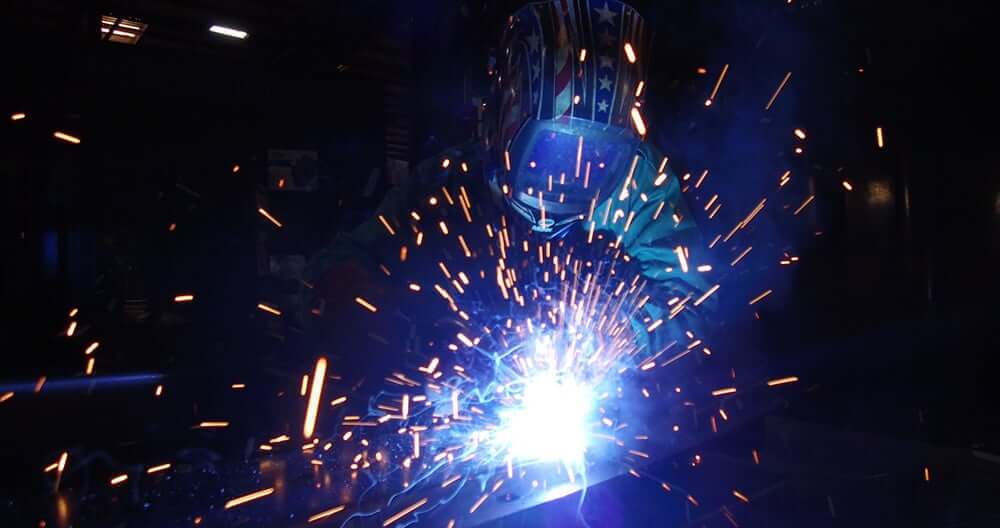Starting a career in welding opens the door to job stability, competitive pay, and long-term growth. However, one of the biggest questions for those entering the field is whether to pursue formal welding certifications or gain hands-on experience through on-the-job training. At Chief Industries, both paths offer valuable opportunities, but choosing the right one depends on career goals and learning preferences.
Understanding Welding Certifications
Welding certifications are industry-recognized credentials that demonstrate a welder’s ability to perform specific types of welding to a professional standard. These certifications are issued by organizations such as the American Welding Society (AWS) and can make candidates more competitive in the job market.
Benefits of Welding Certifications:
- Proof of Skill Level – Validates expertise in various welding techniques.
- Broader Job Opportunities – Certified welders may qualify for specialized or higher-paying positions.
- Industry Recognition – Employers in specific fields, such as aerospace or pipeline welding, often require certifications.
- Competitive Salaries – Welders with advanced certifications can earn higher wages.
- Portability – Certifications are recognized nationwide, allowing flexibility in job opportunities.
Common Welding Certifications:
- AWS Certified Welder (CW)
- Certified Welding Inspector (CWI)
- Structural Welding Certification
- Pipe Welding Certification
- TIG, MIG, and Stick Welding Certifications
The Value of On-the-Job Training
For those who prefer a hands-on approach, on-the-job training (OJT) offers real-world experience while earning a paycheck. Many successful welders start without formal certifications, learning directly from experienced professionals in the workplace.
Benefits of On-the-Job Training:
- Earn While You Learn – No need to pay for schooling; wages start immediately.
- Practical Experience – Learn real-world welding applications, troubleshooting, and safety techniques.
- Job-Specific Skills – Training is tailored to the exact needs of the employer.
- Opportunities for Advancement – Many companies promote from within based on experience and skill level.
- Immediate Employment – No waiting period to complete coursework before joining the workforce.
Which Path Is Right for You?
Deciding between welding certification and on-the-job training depends on career goals, learning preferences, and the types of opportunities available.
Choose Welding Certification If:
- The goal is to work in specialized industries that require certifications.
- A structured, formal education is preferred.
- A higher starting wage is a priority.
There is interest in working on large-scale projects that require extensive safety compliance.
Choose On-the-Job Training If:
- Hands-on learning is the preferred style.
- Starting work immediately without tuition costs is important.
- Gaining practical, workplace-specific experience is the focus.
- Career growth within a single company is a goal.
How Chief Industries Supports Welders
At Chief Industries, both certified and non-certified welders have opportunities for career growth. Whether starting with certifications or training on-site, the company provides:
- Paid Training Programs – Hands-on learning while earning a competitive wage.
- Certification Assistance – Opportunities to gain certifications while working.
- Career Advancement – Growth paths into leadership and specialized welding roles.
- State-of-the-Art Equipment – Access to the latest technology and tools.
- Safety-Focused Training – Ensuring compliance with industry regulations and best practices.
- Mentorship from Experienced Welders – Learning directly from seasoned professionals.
The Future of Welding Careers
As industries continue to evolve, skilled welders will remain in high demand. Automation and technological advancements have enhanced welding precision, but trained professionals are still essential for operating machinery, performing quality control, and managing complex welding tasks.
Welding careers provide a stable income, growth potential, and the ability to work in a variety of fields, including:
- Manufacturing
- Construction
- Ethanol Production
- Energy and Utilities
- Automotive Production
Take the First Step Toward a Welding Career
Choosing between welding certifications and on-the-job training is a personal decision, but either path leads to a successful career. At Chief Industries, opportunities exist for both certified welders and those looking to gain hands-on experience. Call (308) 389-7200 today to explore welding job openings in Nebraska and start building a future in manufacturing.

